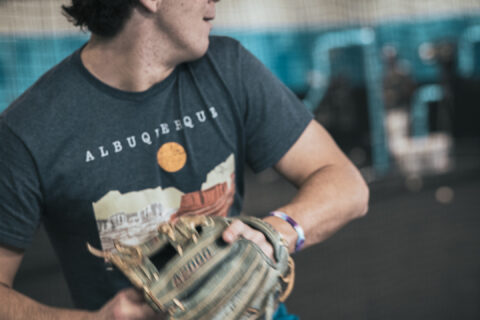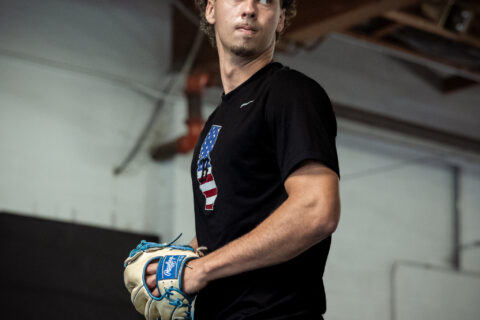Nutrition Advice for Teen Athletes
Eat Extra for Excellence
The good news about eating for sports is that reaching your peak performance level doesn’t take a special diet or supplements. It’s all about working the right foods into your fitness plan in the right amounts.
Teen athletes have different nutrition needs than their less-active peers. Athletes work out more, so they need extra calories to fuel both their sports performance and their growth.
So what happens if teen athletes don’t eat enough? Their bodies are less likely to achieve peak performance and may even break down muscles rather than build them. Athletes who don’t take in enough calories every day won’t be as fast and as strong as they could be and might not maintain their weight.
Athletes and Dieting
Teen athletes need extra fuel, so it’s usually a bad idea to diet. Athletes in sports where there’s a focus on weight — such as wrestling, swimming, dance, or gymnastics — might feel pressure to lose weight. But drastically cutting back on calories can lead to growth problems and a higher risk of fractures and other injuries.
If a coach, gym teacher, or teammate says that you need to go on a diet, talk to your doctor first or visit a dietitian who specializes in teen athletes. If a health professional you trust agrees that it’s safe to diet, they can work with you to create a healthy eating plan.
Eat a Variety of Foods
When it comes to powering your game for the long haul, it’s important to eat healthy, balanced meals and snacks to get the nutrients your body needs.
Besides getting the right amount of calories, teen athletes need a variety of nutrients from the foods they eat to keep performing at their best. These include vitamins and minerals. Calcium and iron are two important minerals for athletes:
- Calcium helps build the strong bones that athletes depend on. Calcium — a must for protecting against stress fractures — is found in dairy foods, such as low-fat milk, yogurt, and cheese.
- Iron carries oxygen to muscles. To get the iron you need, eat lean meat, fish, and poultry; leafy green vegetables; and iron-fortified cereals.
Protein Power
Athletes may need more protein than less-active teens, but most get plenty through a healthy diet. It’s a myth that athletes need a huge daily intake of protein to build large, strong muscles. Muscle growth comes from regular training and hard work. Good sources of protein are fish, lean meats and poultry, eggs, dairy, nuts, soy, and peanut butter.
Carb Charge
Carbohydrates are an excellent source of fuel. Cutting back on carbs or following low-carb diets isn’t a good idea for athletes. That’s because restricting carbs can make you feel tired and worn out, which can hurt your performance.
Good sources of carbs include fruits, vegetables, and grains. Choose whole grains (such as brown rice, oatmeal, whole-wheat bread) more often than processed options like white rice and white bread. Whole grains provide the energy athletes need and the fiber and other nutrients to keep them healthy.
Sugary carbs such as candy bars or sodas don’t contain any of the other nutrients you need. And eating candy bars or other sugary snacks just before practice or competition can give athletes a quick burst of energy, but then leave them to “crash” or run out of energy before they’ve finished working out.
Fat Fuel
Everyone needs some fat each day, and this is extra true for athletes. That’s because active muscles quickly burn through carbs and need fats for long-lasting energy. Like carbs, not all fats are created equal. Choose healthier fats, such as the unsaturated fat found in most vegetable oils, fish, and nuts and seeds. Limit trans fat (like partially hydrogenated oils) and saturated fat, found in fatty meat and dairy products like whole milk, cheese, and butter.
Choosing when to eat fats is also important for athletes. Fatty foods can slow digestion, so it’s a good idea to avoid eating them for a few hours before exercising.
Skip Most Supplements
Sports supplements promise to improve sports performance. But few have proved to help, and some may do harm.
Anabolic steroids can seriously mess with a person’s hormones , causing unwanted side effects like testicular shrinkage and baldness in guys and facial hair growth in girls. Steroids can cause mental health problems, including depression and serious mood swings.
Some supplements contain hormones related to testosterone, such as DHEA (dehydroepiandrosterone). These can have similar side effects to anabolic steroids.
There is solid research on supplements like creatine and protein. These are essential for muscle development and generally very safe to take. When purchasing these products, make sure to look at the ingredients list and stay away from brands that have long lists of ingredients, as most are probably fillers. Try to use brands like Thorne, as they have very few “extra” ingredients.
Ditch Dehydration
Speaking of dehydration, water is as important to unlocking your game power as food. When you sweat during exercise, it’s easy to become overheated, headachy, and worn out — especially in hot or humid weather. Even mild dehydration can affect an athlete’s physical and mental performance.
There’s no one set guide for how much water to drink. How much fluid each person needs depends on their age, size, level of physical activity, and environmental temperature.
Athletes should drink before, during, and after exercise. Don’t wait until you feel thirsty, because thirst is a sign that your body has needed liquids for a while.
Sports drinks are no better for you than water to keep you hydrated during sports. But if you exercise for more than 60 to 90 minutes or in very hot weather, sports drinks may be a good option. The extra carbs and electrolytes may improve performance in these conditions. Otherwise your body will do just as well with water.
Avoid drinking carbonated drinks or juice because they could give you a stomachache while you’re training or competing. Don’t use energy drinks and other caffeine-containing drinks, like soda, tea, and coffee, for rehydration. You could end up drinking large amounts of caffeine, which can increase heart rate and blood pressure. Too much caffeine can leave an athlete feeling anxious or jittery. Caffeine also can cause headaches and make it hard to sleep at night. These all can drag down your sports performance.
Game-Day Eats
Your performance on game day will depend on the foods you’ve eaten over the past several days and weeks. You can boost your performance even more by paying attention to the food you eat on game day. Focus on a diet rich in carbohydrates, moderate in protein, and low in fat.
Here are some tips:
- Eat a meal 3 to 4 hours before activity. Include plenty of carbs and some protein but keep the fat low. Fat takes longer to digest, which can cause an upset stomach. Carbs may include pasta, bread, fruits, and vegetables. Avoid sugary foods and drinks.
- When there are 3 hours or less before game or practice, eat a lighter meal or snack that includes easy-to-digest carbohydrate-containing foods, such as fruit, crackers, or bread.
- After the game or event, experts recommend eating within 30 minutes after intense activity and again 2 hours later. Your body will be rebuilding muscle and replenishing energy stores and fluids, so continue to hydrate and eat a balance of lean protein and carbs.
Everyone is different, so get to know what works best for you. You may want to experiment with meal timing and how much to eat on practice days so that you’re better prepared for game day.


